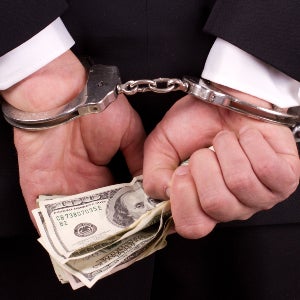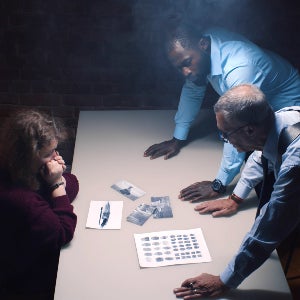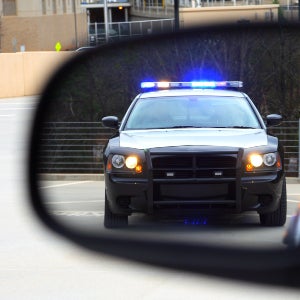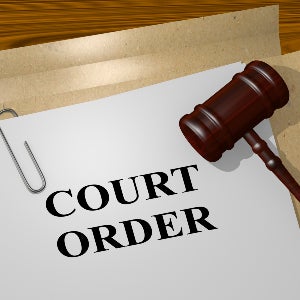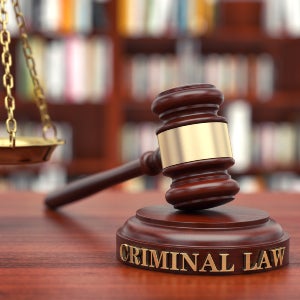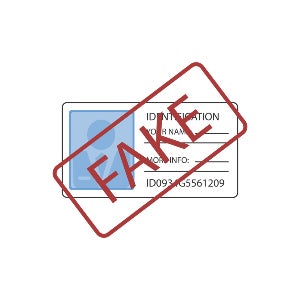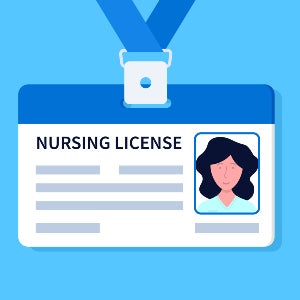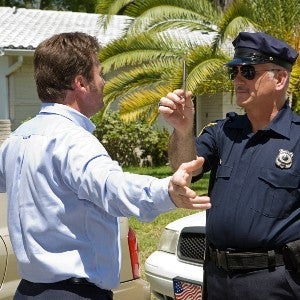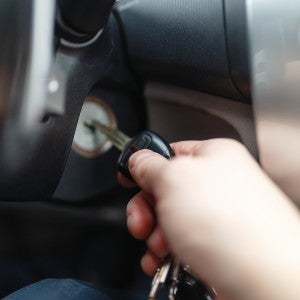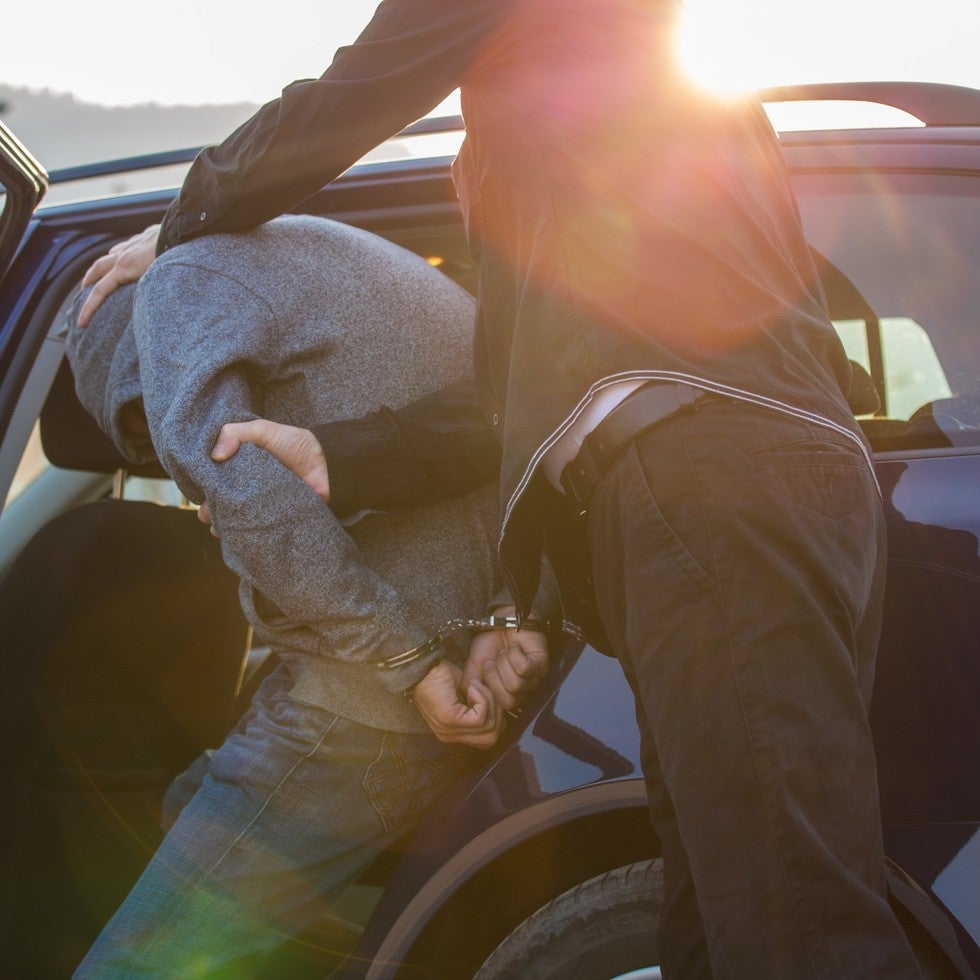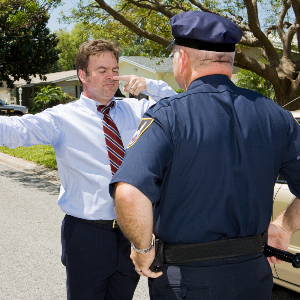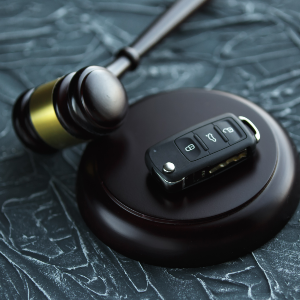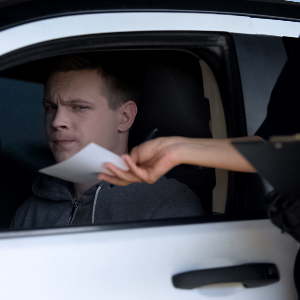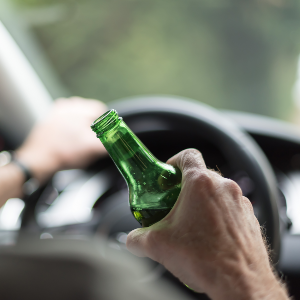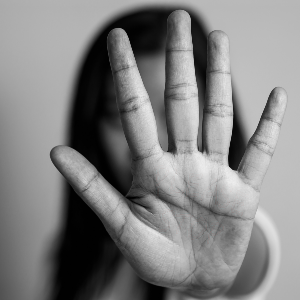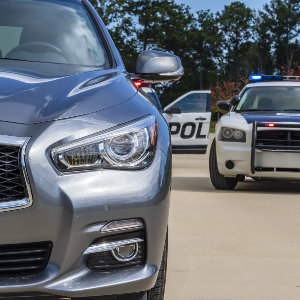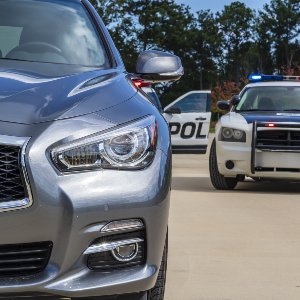If you are a criminal defendant who has been accused of a crime, you may face witness testimony as an element of evidence against you. This means that those who witnessed activities or heard information related to your case may take the stand and be asked to offer information that might be used to prove that you committed the crime in question. If this evidence is presented in a way that is generally consistent with the court’s evidentiary rules, it is typically permitted in a criminal case. Criminal protection must meet the standard of being beyond a reasonable doubt, and a witness testifying can be a huge help to their case.
However, as the criminal defendant, you have the right to question these witnesses when they present their information to determine whether they are credible and truthful. This is generally called the “confrontation clause” and is outlined in the Sixth Amendment.
What Is the Confrontation Clause?
The Sixth Amendment or confrontation clause provides rights for those accused of a crime. These privileges include the right of the accused “to be confronted with the witnesses against him.” This part of the amendment effectively means that someone accused of a crime may cross-examine any of the witnesses who testify at trial and applies to statements made in court and statements made outside of court that are offered as evidence during the trial.
For some time, this provision only applied to federal cases, as state governments did not have to abide by the Sixth Amendment’s restrictions. That all changed after the Fourteenth Amendment was passed in 1866, which subsequently made the right to confrontation applicable to both state and federal courts.
The right to be confronted by a witness provides the accused with three specific protections:
- The Right of Confrontation: This right allows the witnesses to face the accused and appear before them in court.
- The Right of Cross-Examination: This is often considered the most significant of the three protections and allows the accused to dispute the witness’s testimony during direct examination.
- The Right for Testimony to Be Protected Under Perjury Sanctions: This privilege assures legal sanctions if the witnesses’ accusations are false.
The Sixth Amendment is an important tool that criminal defendants may use to protect themselves from damaging witness testimony. However, it is also an often complicated provision that requires the criminal defense attorney to carefully evaluate the possibility of future witness testimony and consider what out-of-court statements might be used against them at trial.
In-Court Testimony
After a witness presents their initial testimony on behalf of the prosecution, the defendant’s attorney may then ask questions to elicit other testimony from the witness. In addition, the criminal defense attorney may cross-examine the witness to shed doubt on their testimony. However, the cross-examining attorney is usually only allowed to ask questions relevant to the facts alleged in the case or similar in scope to what the prosecution asked.
Out-of-Court Testimony
Hearsay is considered testimony from a witness under oath who is reciting a statement from outside the court. Generally, The Federal Rules of Evidence prohibit introducing hearsay statements during applicable federal court proceedings unless certain circumstances apply. Other out-of-court statements, which are not hearsay, are more easily admissible.
In any case, if the person making the statements doesn’t appear in court to testify, using such statements may constitute a violation of the confrontation clause.
How Does the Confrontation Clause Work in Practice?
The Confrontation Clause, embedded within the Sixth Amendment of the United States Constitution, guarantees the right to confront witnesses in criminal prosecutions. It is a fundamental right that ensures fair trials and protects the rights of the accused.
Requirements for Witness Testimony
Under the Confrontation Clause, witnesses who testify against the accused must typically do so in open court, allowing the defendant or their attorney to see, hear, and cross-examine them. This requirement ensures transparency and fairness in the judicial process. Witness testimony is considered crucial evidence in criminal trials, and the ability to confront witnesses directly helps safeguard against false accusations or inaccuracies.
Cross-Examination Procedures
Cross-examination is a fundamental component of the Confrontation Clause analysis. It allows the defendant’s attorney to question witnesses presented by the prosecution. During cross-examination, defense attorneys seek to elicit information that may cast doubt on the witness’s testimony, challenge their credibility, or reveal inconsistencies in their statements. Effective cross-examination can be critical in undermining the prosecution’s case and establishing reasonable doubt in the minds of jurors.
Cross-examination procedures are guided by rules of evidence and courtroom etiquette, ensuring that questioning remains relevant and respectful while serving the defense’s objective of testing the truthfulness and reliability of witness testimony.
Exceptions and Limitations
While the Confrontation Clause guarantees the right to confront witnesses, there are exceptions and limitations, primarily concerning hearsay evidence:
- Hearsay Rules: Hearsay is an out-of-court statement offered to prove the truth of the matter asserted. Generally, hearsay is inadmissible because it lacks the reliability and trustworthiness that comes with live testimony subject to cross-examination. However, there are exceptions to the hearsay rule, such as statements made under oath, prior testimony given at another proceeding, or statements made by unavailable witnesses in certain circumstances.
- Unavailability of Witnesses: The Confrontation Clause does not require the physical presence of every witness if they are genuinely unavailable to testify. For example, a witness may be considered unavailable due to death, illness, or refusal to testify despite a court order. In such cases, previous statements made by the witness under oath or similar circumstances may be admitted if they meet certain legal standards for reliability.
- Reliability and Trustworthiness: Even when hearsay exceptions apply, courts must ensure that the statements are reliable and trustworthy. Factors such as the declarant’s knowledge, demeanor, and consistency play a crucial role in determining admissibility. The goal remains to balance the defendant’s right to confrontation with the need for justice and fairness in criminal proceedings.
In practice, the Confrontation Clause shapes courtroom dynamics and legal strategies significantly. Defense attorneys diligently prepare for cross-examination, scrutinizing witness statements, identifying inconsistencies, and crafting questions designed to challenge the prosecution’s case. Effective cross-examination can weaken the credibility of witnesses, introduce doubt into the prosecution’s narrative, and bolster the defense’s position.
Prosecutors, on the other hand, must ensure that witness testimony adheres to legal standards and withstands rigorous cross-examination. They must lay a foundation for witness credibility and reliability, anticipating potential challenges from the defense and presenting witnesses in a manner that enhances their testimony’s persuasiveness.
Why Is the Right to Confront Your Accuser Important?
The right to confront one’s accuser, enshrined in the Sixth Amendment of the United States Constitution, is a fundamental principle in ensuring fair trials and protecting the rights of the accused. This right serves multiple critical purposes essential to maintaining justice in the legal system.
Importance of a Fair Trial
The right to confront your accuser is pivotal in guaranteeing a fair trial for defendants. The legal system promotes transparency and accountability by allowing the accused to face and cross-examine witnesses who testify against them. This ensures that evidence presented against the defendant is reliable and subjected to scrutiny, reducing the risk of wrongful convictions based on inaccurate or fabricated testimony.
Impact on Defense Strategies
For defense attorneys, the ability to cross-examine witnesses is crucial for crafting effective defense strategies. Cross-examination allows attorneys to challenge the credibility, biases, and motives of witnesses. It enables them to uncover inconsistencies in testimony, highlight potential errors or omissions, and present alternative interpretations of events. This process not only strengthens the defense’s position but also contributes to the discovery of truth by exposing weaknesses in the prosecution’s case.
Protecting the Accused’s Rights
The right to have a face to face confrontation with one’s accuser is a fundamental aspect of due process guaranteed to individuals accused of crimes. It empowers defendants to participate in their defense actively and to challenge the evidence presented against them directly. By ensuring that defendants have the opportunity to question witnesses who may have critical information about the case, this right helps prevent unfair advantages that could arise from unchecked or unverified testimony.
Balancing Victim Protection and Defendant Rights
While the right to have a face-to-face confrontation with one’s accuser is essential for protecting the defendant’s rights, it must be balanced with considerations for victim protection and the integrity of the criminal justice system process:
- Ensuring Accurate Testimony: Cross-examination helps verify the accuracy and reliability of a witness’s testimony, which is crucial for upholding the truth-seeking function of trials.
- Preventing Unfair Advantage: Allowing defendants to confront their accusers prevents unfair advantages that could arise if witnesses were allowed to testify anonymously or without facing direct questioning.
- Respecting Victim Privacy: Courts may implement measures to protect vulnerable witnesses, such as minors or victims of sensitive crimes, while still upholding the defendant’s right to confront their accuser. This could include allowing testimony via closed-circuit television or providing support services during testimony.
While balancing victim protection and defendant rights remains a challenge, the legal system continues to evolve mechanisms that uphold both principles without compromising the integrity of justice. Understanding the significance of the right to confront your accuser underscores its essential role in safeguarding individual liberties and maintaining the legitimacy of criminal trials.
Practical Applications in Legal Proceedings
In practice, the right to confront your accuser influences various stages of legal proceedings:
- Witness Preparation: Defense attorneys meticulously prepare for cross-examination by reviewing witness statements, identifying inconsistencies, and developing lines of questioning to challenge the prosecution’s case.
- Trial Strategy: Effective cross-examination can weaken the prosecution’s narrative and create reasonable doubt in the minds of jurors, potentially leading to favorable outcomes for the defense.
- Appeal Grounds: Violations of the Confrontation Clause, such as restrictions on cross-examination, can form grounds for appeal if they are found to have prejudiced the defendant’s right to a fair trial.
The right to confront one’s accuser is not merely a procedural formality but a cornerstone of justice that ensures fairness, protects defendant rights, and enhances the reliability of trial outcomes. By allowing defendants to challenge a witness’s testimony in a criminal trial through cross-examination, this right contributes to the adversarial nature of legal proceedings and promotes the pursuit of truth in courtrooms.
How Can Legal Representation Help Protect Your Sixth Amendment Right?
The right to confront one’s accuser is a fundamental aspect of due process in criminal trials, ensuring fairness and protecting the rights of the accused. Legal representation plays a crucial role in helping defendants effectively exercise their Sixth Amendment. Here’s how attorneys assist in navigating and leveraging the right to confront your accuser:
Preparation and Case Analysis
Before the criminal trial, defense attorneys thoroughly analyze the case against their client. They work on obtaining witnesses and scrutinizing witness statements, police reports, and other relevant evidence to identify key witnesses and potential weaknesses in the prosecution’s case. This preparation allows attorneys to formulate strategies for cross-examining witnesses and challenging the prosecution’s narrative.
Advising on Legal Strategies
Experienced attorneys provide strategic advice on how best to exercise a criminal defendant’s right to confront your accuser. They assess the strengths and weaknesses of a witness’s testimony, weigh the potential impact of cross-examination, and determine whether to challenge witness credibility, inconsistencies, biases, or motives. Attorneys also advise on courtroom demeanor and how to effectively present the defense’s perspective during cross-examination.
Conducting Cross-Examination
During the trial, defense attorneys conduct a face to face confrontation, a cross-examination to challenge the prosecution’s witnesses. This process involves questioning witnesses to elicit favorable facts for the defense, expose inconsistencies or contradictions in their testimony, and undermine the prosecution’s case. Conducting an examination effectively can weaken the credibility of witnesses and create doubt in the minds of jurors, which is critical for securing acquittals or favorable verdicts for defendants.
Protecting Against Unfair Practices
Attorneys ensure that the right to confront one’s accuser is upheld throughout legal proceedings. They object to attempts by the prosecution to introduce hearsay evidence or limit cross-examination opportunities. Attorneys also challenge any efforts to present a witness’s testimony in a manner that prevents effective confrontation, such as testimony via video or without the defendant present.
Asserting Constitutional Rights
Legal representation is essential for asserting and defending constitutional rights, including the confrontation clause that solidifies the right to confront one’s accuser. Attorneys argue motions to suppress evidence obtained through unconstitutional means, advocate for fair criminal trial procedures, and raise objections during testimony that violates the Confrontation Clause. They also appeal rulings that restrict or undermine the defendant’s ability to exercise this fundamental right.
Crafting Closing Arguments
In closing arguments, attorneys summarize the weaknesses in the prosecution’s case exposed by conducting the examination. They reinforce the importance of the Sixth Amendment in evaluating witness credibility, the court statements, and the overall reliability of the evidence presented. Attorneys highlight how effective cross-examination has contributed to reasonable
doubt and urge jurors to consider these factors in reaching their verdict.
Managing Post-Trial Proceedings
Legal representation continues to be crucial after the trial. Attorneys may file appeals based on violations of the Confrontation Clause or other legal grounds. They advocate for overturning convictions or securing new trials if the defendant’s right to confront their accuser was compromised during the initial proceedings.
What Are the Limitations and Challenges of the Confrontation Clause?
The Confrontation Clause, found within the Sixth Amendment of the United States Constitution, guarantees individuals accused of crimes the right to confront witnesses against them. While this right is fundamental to ensuring fair trials and protecting defendant rights, it also presents certain limitations and challenges in its application. Understanding these complexities is crucial for effectively navigating the legal landscape.
Hearsay and Exceptions
One of the primary challenges related to the Confrontation Clause is the issue of hearsay. Hearsay refers to out-of-court statements made by someone other than the witness testifying in court, which are offered to prove the truth of the matter asserted. The Confrontation Clause generally requires that witnesses testify in person, allowing the accused to cross-examine them directly. However, there are numerous exceptions to the hearsay rule where such statements may be admitted without violating the Confrontation Clause, including:
- Dying Declarations: Statements made by a person who believes they are about to die regarding the cause or circumstances of their impending death.
- Excited Utterances: Statements made spontaneously under the stress of a startling event, often considered reliable due to their immediacy and lack of time for fabrication.
- Business Records: Records kept in the ordinary course of business, which are considered trustworthy and may be admitted as evidence.
These exceptions aim to balance the need for reliability in evidence with the defendant’s right to confront their accusers. However, they can also pose challenges in ensuring that defendants have a full and fair opportunity to challenge all evidence presented against them.
Child Witnesses and Vulnerable Victims
Another limitation of the confrontation clause arises when dealing with child witnesses or victims of certain crimes who may be vulnerable or traumatized. Courts sometimes allow for accommodations such as testifying via closed-circuit television or with the presence of support persons to protect these witnesses. While such measures aim to minimize distress and ensure truthful testimony, they may restrict the defendant’s ability to confront the witnesses face-to-face. Balancing the need to protect vulnerable witnesses with the defendant’s right to confrontation remains a delicate legal issue.
Unavailability of Witnesses
The Confrontation Clause only guarantees the right to confront those who testify against the defendant. If a witness is unavailable to testify in court — for instance, due to death, illness, or refusal to testify — the defendant’s ability to cross-examine that witness may be compromised. Courts may allow previously recorded testimony or out-of-court statements made under oath (depositions) to be admitted as evidence, which raises concerns about reliability and fairness if the defendant cannot cross-examine the witness directly.
Balancing Rights and Judicial Efficiency
In complex cases with multiple witnesses, ensuring the defendant’s right to confront each witness can prolong trials and complicate legal proceedings. Courts must balance the defendant’s constitutional rights with considerations of judicial efficiency and the timely administration of justice. This balance becomes particularly challenging in cases involving extensive witness lists or logistical difficulties in securing witness testimony.
Technology and Modern Challenges
Advancements in technology present new challenges to the Confrontation Clause. For example, video conferencing allows witnesses to testify remotely, raising questions about the effectiveness of cross-examination and the defendant’s ability to observe the witness’s demeanor and non-verbal cues. While technology can enhance access to justice, its use must be carefully managed to ensure that it does not undermine the defendant’s right to confront their accusers in a meaningful way.
Judicial Interpretation and Evolution
Judicial decisions have evolved the interpretation of the Confrontation Clause, impacting its application in various legal contexts. Courts continue to grapple with defining the scope of confrontation rights in light of evolving legal principles and societal changes. As interpretations evolve, so too do the challenges and debates surrounding the practical application of the Confrontation Clause in modern legal practice.
What Is a Confrontation Clause Violation?
A Confrontation Clause violation occurs when a defendant is denied the opportunity to face their accusers or challenge the evidence through cross-examination. This can happen in several ways, compromising the fairness of the trial and potentially leading to wrongful convictions. Here are some common scenarios where violations may occur:
Admission of Hearsay Evidence
One of the most frequent violations involves the admission of hearsay evidence. Hearsay is an out-of-court statement presented to prove the truth of the matter asserted. Generally, hearsay is inadmissible because the defendant cannot conduct a cross-examination of the person who made the statement. However, there are exceptions, and sometimes courts allow hearsay under specific circumstances. If the hearsay does not fall within these exceptions, its admission can violate the Confrontation Clause.
Witness Unavailability
Another violation occurs when a witness’s prior testimony or statement is admitted without giving the defendant a chance to conduct a cross-examination of the witness in court. If a witness is unavailable (e.g., due to death or severe illness) and their testimony is introduced without prior cross-examination, it can constitute a violation unless it meets certain criteria for reliability and necessity.
Remote Testimony
Remote testimony, such as videoconferencing, can also lead to violations if it prevents the defendant from having a face-to-face confrontation and from effectively cross-examining the witness. While technology can facilitate court procedures, it must be used in a way that preserves the defendant’s confrontation rights.
Why It Matters
Confrontation Clause violations undermine the integrity of the criminal justice system. The right to confront and cross-examine witnesses ensures that testimony is reliable and that defendants have a fair opportunity to challenge the evidence against them. Recognizing and addressing these violations is crucial for maintaining justice and preventing wrongful convictions. If a Confrontation Clause violation is identified, it can result in the exclusion of certain evidence or even the reversal of a conviction on appeal.
How to Know When a Witness Is Credible
Assessing witness credibility is crucial in legal proceedings, as the reliability of testimony can significantly impact the outcome of a case. Determining a witness’s credibility involves evaluating several factors, both subjective and objective, to ascertain the truthfulness and reliability of their statements.
Consistency of Testimony
One of the primary indicators of a witness’s credibility is the consistency of their testimony. Credible witnesses provide accounts that remain stable over time without significant changes or contradictions. Inconsistent statements can indicate dishonesty or confusion, undermining the witness’s reliability.
Demeanor and Behavior
The demeanor of a witness while testifying can offer clues to their credibility. A witness who appears calm, composed, and confident is often seen as more credible than one who is nervous, evasive, or overly defensive. However, it is essential to consider cultural and personal differences that might affect a person’s behavior under stress.
Corroboration with Other Evidence
A witness’s testimony that is supported by other evidence, such as physical evidence, documents, or other witness statements, is generally deemed more credible. Corroborative evidence strengthens the witness’s account, making it more believable and reliable.
Plausibility and Detail
Credible witnesses provide detailed, plausible accounts of events. Their testimony should make
logical sense and fit within the known facts of the case. Implausible or vague testimonies raise doubts about the witness’s credibility.
Lack of Bias or Motive
Witnesses with no apparent bias or motive to lie are generally considered more credible. If a witness has a personal interest in the outcome of the case or holds a grudge against one of the parties, their testimony may be tainted by bias.
Reputation and Past Behavior
A witness’s past behavior and reputation for honesty can also impact their credibility. Witnesses known for their integrity and reliability are more likely to be believed than those with a history of dishonesty or criminal behavior.
Understanding Dying Declarations Exception to the Sixth Amendment
The Sixth Amendment to the United States Constitution guarantees the right of criminal defendants to confront their accusers. This Confrontation Clause ensures that defendants have the opportunity to challenge the evidence and testimony presented against them through cross-examination. However, there are exceptions to this rule, one of the most notable being the “dying declaration” exception.
What Is a Dying Declaration?
A dying declaration is a statement made by a person who believes they are about to die regarding the cause or circumstances of their impending death. This statement is considered an exception to the hearsay rule, which generally prohibits the admission of out-of-court statements to prove the truth of the matter asserted. Under the dying declaration exception, such statements are admissible in court despite the inability of the defendant to cross-examine the declarant.
Legal Foundation and Rationale
The dying declaration exception has historical roots dating back to English common law. The rationale behind this exception is the belief that individuals on the verge of death are unlikely to lie, given the gravity and solemnity of their situation. The assumption is that the awareness of imminent death eliminates any motivation to provide false testimony, making the declaration inherently trustworthy.
Requirements for a Dying Declaration
For a statement to qualify as a dying declaration, several conditions must be met:
- Imminent Death: The declarant must believe that death is imminent at the time the statement is made. This belief must be genuine, though the actual death need not occur immediately after the statement.
- Cause or Circumstances of Death: The statement must relate directly to the cause or circumstances of the declarant’s impending death. General statements or those unrelated to the death do not qualify.
- Competence: The declarant must be competent at the time of making the statement, meaning they are mentally sound and capable of understanding the situation.
When a dying declaration is presented in court, the judge must determine whether it meets the necessary criteria to be admitted as evidence. This determination involves assessing the context in which the statement was made, the declarant’s state of mind, and the relevance of the statement to the cause or circumstances of death.
Balancing the Rights of the Defendant
While the dying declaration exception serves to admit crucial evidence that might otherwise be unavailable, it also raises concerns regarding the defendant’s Sixth Amendment rights. Since the defendant cannot cross-examine the declarant, there is a potential for abuse or misinterpretation of the declarant’s statement.
Courts address this concern by applying stringent standards to the admissibility of dying declarations. The reliability of the statement is critically evaluated, and any indication that the declarant might not have genuinely believed death was imminent can lead to the exclusion of the declaration. This careful scrutiny helps balance the need for reliable evidence with the defendant’s constitutional rights.
Challenges and Criticisms
Despite its historical acceptance, the dying declaration exception is not without criticism. Some legal scholars and practitioners argue that the assumption of reliability may not always hold true, as individuals facing imminent death could still have motives to lie or be influenced by external factors. Additionally, the absence of cross-examination poses a significant challenge to the defense, potentially impacting the fairness of the trial.
Contact an Experienced Criminal Defense Lawyer at Aron Law Firm
For questions about your constitutional right to confront your accuser or to discuss your case with one of our criminal defense lawyers, contact Aron Law Firm today. Our expert attorneys are dedicated to protecting your rights by investigating your case in detail, building a robust defense, and strategizing a tactical way to confront and cross-examine witnesses. Our legal team is well-versed in California criminal defense laws and may help you avoid the consequences that stem from this offense.
At Aron Law Firm, we have experience protecting clients from a wide variety of criminal charges. We take a client-centered approach that aims to make the legal process as painless as possible. To speak with a criminal defense attorney, schedule a consultation by calling (805) 618-1768 or completing our online contact form today.
 Facing DUI charges can be life-altering, and the resulting effects may pose a significant impact on your career. Consequently, one of the most important steps you can take after being charged is contacting a knowledgeable and experienced attorney who can build you a rock solid defense. While approaching a lawyer may sound like an intimidating task, it’s important to know that our team will listen to your story, identify important details, and gather evidence to cast doubt on the accusations against you.
Facing DUI charges can be life-altering, and the resulting effects may pose a significant impact on your career. Consequently, one of the most important steps you can take after being charged is contacting a knowledgeable and experienced attorney who can build you a rock solid defense. While approaching a lawyer may sound like an intimidating task, it’s important to know that our team will listen to your story, identify important details, and gather evidence to cast doubt on the accusations against you. 
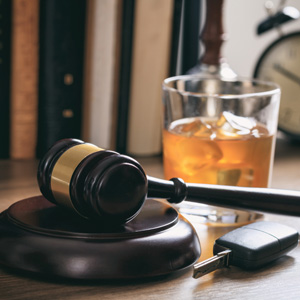
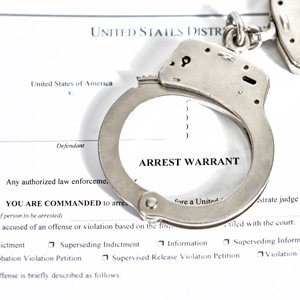
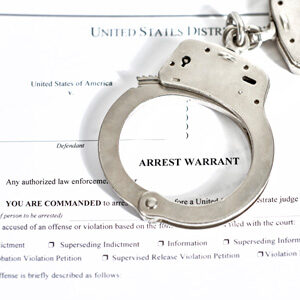

 In California, minors may refuse a breathalyzer test. However, this choice is not without consequences. Refusing a breathalyzer test often has serious legal consequences, including license suspension and DUI charges.
In California, minors may refuse a breathalyzer test. However, this choice is not without consequences. Refusing a breathalyzer test often has serious legal consequences, including license suspension and DUI charges.
 Alcohol and drugs are two of the most common reasons minors are arrested. In terms of drug-related offenses, the most common charges minors face are possession of drugs, drug trafficking and driving under the influence. The drug type and quantity may significantly impact the severity of the charges, and in extreme cases, a minor may be tried as an adult.
Alcohol and drugs are two of the most common reasons minors are arrested. In terms of drug-related offenses, the most common charges minors face are possession of drugs, drug trafficking and driving under the influence. The drug type and quantity may significantly impact the severity of the charges, and in extreme cases, a minor may be tried as an adult.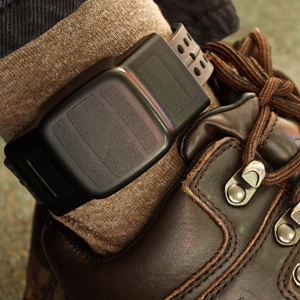
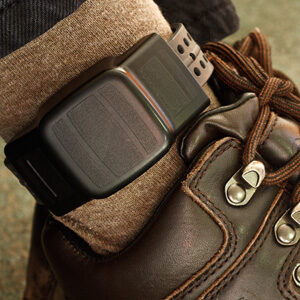 Your criminal defense attorney’s goal will always be to get you acquitted or have your charge dismissed, but these goals are not always viable. In cases where the evidence against you is overpowering, a conviction may be inescapable. However, this does not mean all hope is lost. Your lawyer may still be able to negotiate a plea that includes a term of probation.
Your criminal defense attorney’s goal will always be to get you acquitted or have your charge dismissed, but these goals are not always viable. In cases where the evidence against you is overpowering, a conviction may be inescapable. However, this does not mean all hope is lost. Your lawyer may still be able to negotiate a plea that includes a term of probation.
 When crimes are motivated by financial gain, they typically fall under white-collar crimes in California and are punishable by fines, jail time, or prison sentences. Depending on the amount of money involved and the circumstances surrounding the criminal act, white-collar crimes may result in lengthy prison time upon conviction.
When crimes are motivated by financial gain, they typically fall under white-collar crimes in California and are punishable by fines, jail time, or prison sentences. Depending on the amount of money involved and the circumstances surrounding the criminal act, white-collar crimes may result in lengthy prison time upon conviction.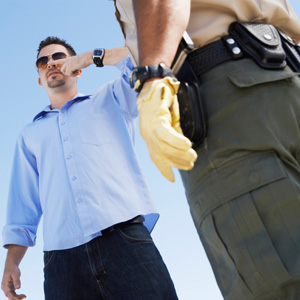
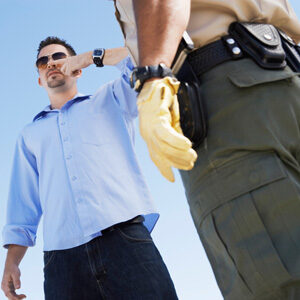 In California, over
In California, over 
 Some scams are so elaborate and damaging that they are made into feature films. “
Some scams are so elaborate and damaging that they are made into feature films. “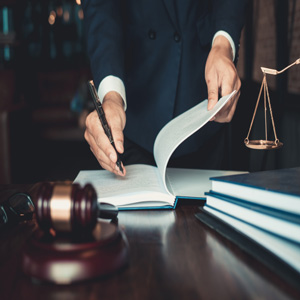
 California has one of the strictest sex offender laws in the U.S. The state also maintains a massive public sex offender database called Megan’s Law, where anyone may look up offenders. While you may want to remove yourself from the database, you may be worried that doing so will mean forfeiting other legal rights.
California has one of the strictest sex offender laws in the U.S. The state also maintains a massive public sex offender database called Megan’s Law, where anyone may look up offenders. While you may want to remove yourself from the database, you may be worried that doing so will mean forfeiting other legal rights.
 Approximately half a million individuals aged 12 years and older fall victim to
Approximately half a million individuals aged 12 years and older fall victim to



